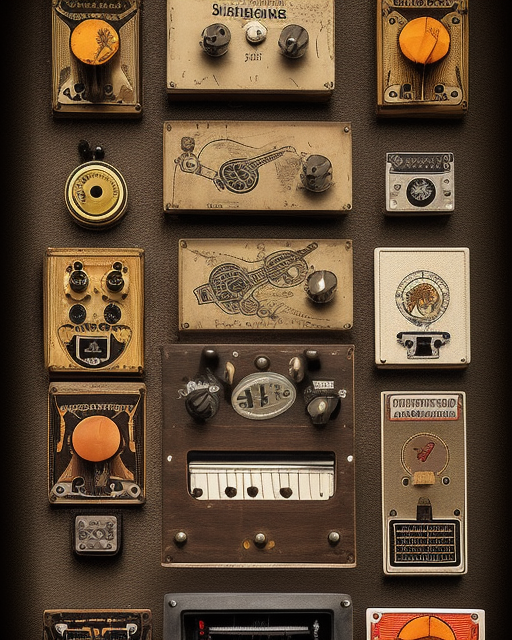How to Avoid Musical Disasters: A Guide to Choosing and Working with Engineers and Session Musicians
Whether you're a solo artist, producer, or engineer, working with collaborators such as engineers or session musicians can help you bring your ideas to life.
If you want to make awesome music in the recording industry, you need to find some buddies who know what they’re doing and can help you out.
However, selecting the right collaborators and working effectively with them can be a challenging task.
Here are some tips:
Selecting Collaborators-When selecting collaborators, it's important to keep in mind the specific goals of your project.
Don’t just pick anyone, though.
Pick people who have the skills you lack, like playing an instrument, singing in tune, or knowing how to use a computer. Then, talk to them and tell them what you want to do and how they can help.
Don’t be bossy or rude, though. Be nice and polite, and maybe buy them pizza or something. That way, you can have a fun and productive collaboration that makes everyone happy and sounds amazing.
Consider the following factors: Skill Set: Look for collaborators who have the specific skills that you need to bring your project to fruition. For example, if you need a session drummer, look for someone who can play the style of music that you want to record. And by style, I mean something more specific than "rock". Do you want a drummer who can play fast and furious like Dave Grohl, or smooth and groovy like Questlove?
Do you want a drummer who can improvise on the spot, or follow a strict click track? Do you want a drummer who can play with brushes, sticks, or their hands? These are important questions to ask before you hire someone.
Experience: Consider the level of experience that your collaborators have. If you're working on a complex project, you may want to work with someone who has more experience than a newcomer. But don't judge a book by its cover. Sometimes, a fresh perspective can be more valuable than years of experience.
For example, if you're looking for a vocalist, you may want to work with someone who has a unique voice and style, rather than someone who sounds like everyone else on the radio. Or maybe you want to work with someone who sounds like everyone else on the radio. It's up to you.
Communication: Good communication is essential for a successful collaboration. Choose collaborators who are easy to communicate with and who understand your creative vision. Avoid collaborators who are rude, arrogant, or unresponsive. You don't need that kind of negativity in your life.
Also, avoid collaborators who are too agreeable or passive. You don't need that kind of blandness in your music. Look for collaborators who can give and receive constructive feedback, who can compromise when necessary, and who can respect your artistic choices.
Reputation: Look for collaborators who have a good reputation in the industry. Do a little digging, either with other musicians or the net, and look for examples of their work to ensure that they have a track record of delivering your type of work. But don't be fooled by flashy websites or social media profiles.
Sometimes, the best collaborators are the ones who are humble and low-key. They may not have millions of followers or awards, but they have passion and talent. And that's what matters.
Working with Collaborators Once you've selected your collaborators, it's important to establish clear lines of communication and set expectations. This is actually really important. You may be giddy that you are working with some you admire, but don't let the boundaries of what is acceptable be pushed.
Keep it pro by following these rules: Set clear goals: Clearly define the goals of your project and communicate them to your collaborators. Don't assume that they know what you want or how you want it done. Be specific and realistic about what you expect from them and what they can expect from you.
For example, if you're working with a session guitarist, tell them what kind of guitar sound you want, what kind of parts you want them to play, how many takes you want them to do, how much time they have to do it, how much you're paying them (if anything), and how you want them to deliver the files.
Establish roles and responsibilities: Make sure that everyone knows their role and responsibility in the project. Don't let anyone step on anyone else's toes or take credit for someone else's work. For example, if you're working with a producer, make sure that they know what level of creative control they have over your music and what level of input you want from them.
If you're working with an engineer, make sure that they know what kind of sound quality you expect from them and what kind of editing or mixing services they provide.
Communicate regularly: Keep in touch with your collaborators throughout the project and update them on any changes or issues that arise. Don't leave them in the dark or ghost them. Be respectful of their time and availability, and respond to their messages promptly and politely. If possible, use a common platform or tool to communicate and share files, such as Google Drive or Dropbox.
Remember that collaborating is a two-way street, so be open to feedback and always be willing to listen to your collaborators' ideas.
Otherwise, what is the point?




